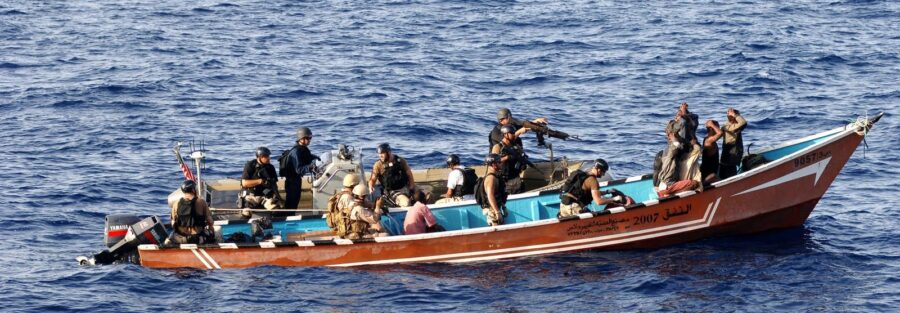Project Background
The project aims to investigate the relationship between counterpiracy efforts and the persistence of piracy in the Gulf of Guinea (GoG) region. It questions the assumption that counterpiracy leads to a reduction in piracy and seeks to identify the conditions under which counterpiracy may or may not be effective. The project aims to generate research-based knowledge on the dynamics of piracy and counterpiracy in order to address the ongoing piracy challenges in the region.
The project highlights the history of counterpiracy efforts in the GoG region, including initiatives such as the Yaoundé architecture and the Danish Peace and Stabilization Fund program. Despite these efforts, piracy continues to pose a significant challenge to international shipping and maritime security in the GoG. The project seeks to understand the persistence of piracy and examine the intersections between piracy and counterpiracy efforts.
COPIGoG makes two main contributions. Firstly, it investigates the relationship between piracy and counterpiracy, which is a novel approach in both academic and policy analysis. Most existing analyses focus on either piracy or counterpiracy in isolation. Secondly, the project frames piracy and counterpiracy as infrastructures and develops a theoretical lens to study them. By conceptualizing piracy and counterpiracy as infrastructures, the project aims to shed light on their interconnections and examine how they shape maritime security in the GoG region.
The project is highly relevant due to the importance of addressing piracy in the GoG region, which is a crucial maritime trade route. It aligns with international priorities, including Denmark’s regional engagement in pursuit of Sustainable Development Goals (SDGs) 14, 16, and 17. Additionally, the project contributes to Denmark’s efforts in the region, including the Peace and Stabilization Fund program and the deployment of a Danish warship. It also addresses several SDGs, such as SDG 14, SDG 16, SDG 17, SDG 4, and SDG 5, through its focus on maritime security, partnerships, quality education, and gender equality.
Project Objectives
- To explore the relationship between counterpiracy and piracy, examining the policy implications and contributing to the theorization of infrastructure within the context of maritime security.
- To enhance the understanding of piracy in the GoG region by investigating three underexplored dimensions: the existence of piracy networks beyond the Niger Delta and their potential response to counterpiracy efforts, the connections between kidnap-for-ransom piracy and other maritime crimes, and the possible interconnections between deep offshore pirates and riverine criminality, with the ultimate goal of providing valuable insights for effective counterpiracy strategies.
- Investigates counterpiracy infrastructures in the GoG, exploring their effectiveness in providing maritime security in Zone E and F.
- To develop four online learning modules on maritime security for CEMLAWS with input from all members, building upon the course developed in the FFU-funded AMARIS project.
Project Implementing Partners
- Centre for Maritime Law and Security Africa (CEMLAWS Africa)
- University of Copenhagen
Funded by
Danish International Development Agency (DANIDA)





